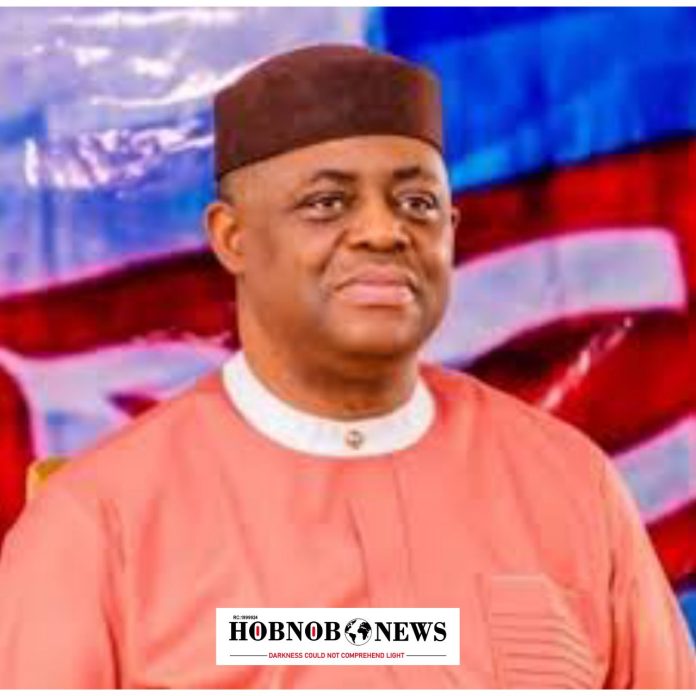The Federal Government is currently vetting candidates for diplomatic positions across Nigeria’s 109 missions, 76 embassies, 22 high commissions, and 11 consulates, according to reports. Among the potential nominees are former Minister of Aviation under the Obasanjo administration, Mr. Femi Fani-Kayode, and former Deputy Governor of Lagos State, Femi Pedro.
Sources familiar with the process have disclosed that the vetting is not centralized. Instead, nominees are instructed to report to the nearest DSS offices for their vetting. Presidential officials confirmed that various candidates have been contacted to provide details of their education and work history. “They’re already doing security checks with DSS. When they have cleared security checks, we will release the list. Only those who have been cleared are announced. The process is ongoing. I know that we should have a list before the end of this month (April),” said an official, who requested anonymity.
Another source mentioned that the vetting process is location-based, with nominees contacted to provide personal information, including their educational backgrounds and previous positions held.
Since September 2023, President Bola Tinubu has been running his 4Ds—Democracy, Development, Demography, and Diaspora—foreign policy without ambassadors. That month, he completed a sector-wide reassessment of Nigeria’s foreign policy, which led to the recall of over 83 career and non-career ambassadors from their posts.
Reliable sources close to the President revealed that Tinubu spent part of his holiday last December reviewing nominees’ names, with plans to present a consolidated list to the National Assembly by the end of that month. However, updates in January suggested that the process was delayed.
One significant reason for the delay has been funding issues, with reports stating that approximately $1 billion is needed to cover arrears for foreign service officials, clear a backlog of overheads, replace outdated vehicles, and renovate embassy buildings. “You see, the major issue is money. Not money to pay them [ambassadors], because how much is their salaries and benefits? The main money is CAPEX [Capital Expenditure]. By the time they put the cost together to fix the issues, it is running to almost $1bn,” an official stated.
The official went on to explain that most of Nigeria’s embassies are in disrepair, with many either lacking proper office space, adequate housing for staff, or expired leases. “Most of those embassies, almost 90 per cent, are rundown. Either the residence is not good, the embassy does not have a functional office, or their rent has expired. The embassies that are buoyant may not be up to 10 as we speak,” they added. In some cases, even the vehicles used by ambassadors are outdated, with some being over ten years old and in disrepair. Ambassadors are often unable to use such vehicles due to their poor condition, which negatively impacts the country’s image. Some embassies even lack basic amenities like power and running water, which makes the posts challenging.
The Minister of Foreign Affairs, Yusuf Tuggar, also attributed the delay to financial constraints. “It is a money problem,” he said during a ministerial briefing in Abuja last May. Tuggar emphasized that appointing ambassadors without the necessary funding to support their travel or maintain missions abroad would be ineffective. “There is no point sending out ambassadors if you do not have the funds for them to even travel to their designated countries and to run the missions effectively, one needs funding. Mr. President is working on it, and it will be done in due course,” he explained.
Though some funds have been allocated for these purposes in the 2025 budget, a foreign service official noted that the amount is insufficient. “Though provisions had been made in the 2025 budget to cover some of that cost, the funds were hardly enough,” the official explained.
While the full list of nominees remains classified, senior officials from the Presidency and the foreign service have revealed that several prominent figures are under consideration. “They’re going to announce the appointments soon. They are being screened as we speak. The names of the nominees are highly classified for now because not every one of the names listed will eventually make it through,” one official said.
Femi Fani-Kayode (FFK) is among those reportedly on the list. Other notable figures include Fola Adeola, the founder of Guaranty Trust Bank Plc, and Femi Pedro. Officials emphasized that the process is moving forward more swiftly this time. However, the vetting process is seen as necessary to ensure that nominees do not have any security issues that could negatively impact Nigeria’s reputation. “The nominees are being vetted, and background checks are being conducted on them. It is usually done so that the nominees will not have any security issues and their deployment will not have a negative impact on the country,” another official explained.
There were claims that Reno Omokri, a former aide to former President Goodluck Jonathan, was among the nominees, but a credible source within the Presidency denied this. “Reno is not on the list. But FFK is there,” the source clarified.
Bayo Onanuga, the President’s Special Adviser on Information and Strategy, noted that the nomination process for ambassadorial roles involves two categories: career and political ambassadors. He emphasized the importance of thorough vetting before the final list is submitted to the National Assembly. “Don’t forget that the ambassadorial list has two components. There are career ambassadors and political ambassadors. The foreign affairs list and the consolidated list will still go through certain processes before they are released,” Onanuga said.
When contacted by reporters, two of the nominees declined to comment on the matter and did not confirm or deny their inclusion on the list.

